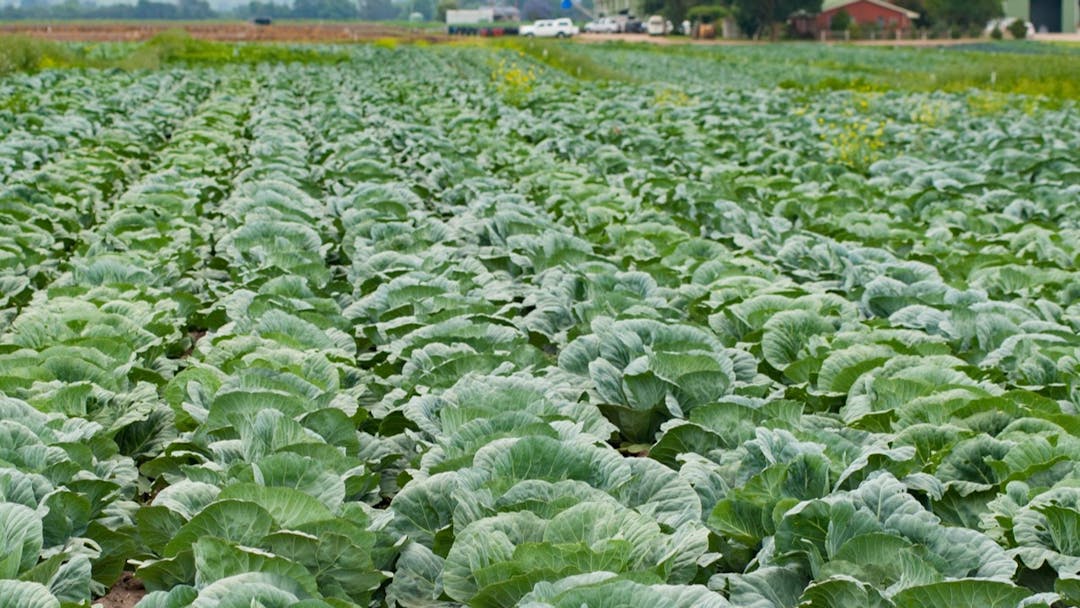Rural Land Use Strategy
The Rural Land Use Strategy was adopted at the 25 July 2023 Council Meeting.

Council approves land-use strategy to protect farms, rural areas — Thursday 27 July 2023
East Gippsland Shire Council has voted to adopt a Rural Land Use Strategy at its Council Meeting held on Tuesday 25 July 2023. The adoption marks a significant milestone in Council’s efforts to support East Gippsland's farming communities and protect our agricultural land for future generations.
The strategy comes after significant public consultation and a review of the draft strategy after it was first considered at a Council meeting in early June and then deferred for one month.
Mayor Cr Mark Reeves emphasised the pivotal role farming plays in sustaining the local economy and character of East Gippsland and the need to preserve agricultural land for the future.
“The strategy will provide significant benefits. It addresses land fragmentation while recognising the need for rural homes to support agricultural activities. Under the strategy, the Rural Activity Zone will now offer a tailored approach for agritourism, nature-based tourism, and smaller scale farming,” Cr Reeves said.
“Overall, the strategy provides a balanced approach to land use, safeguarding agriculture and supporting sustainable growth.”
Cr Reeves acknowledged that many people provided a wide variety of input and views on the Rural Land Use Strategy, which were formative for councillors making their decision.
The strategy aims to create a planning framework that supports agriculture, rural industries and nature-based tourism, with the primary goal being to ensure that land subdivision and development in East Gippsland's rural areas protect and secure farming land.
The strategy proposes that the planning scheme be amended to require a planning permit for dwellings on properties less than 80 hectares in a Farming Zone (FZ1). The strategy outlines various situations where a permit for a house on a property of less than 80Ha, situated in a farming zone, may be granted. These include circumstances where a dwelling on a small lot near smaller settlements may be approved to support the future viability of those settlements.
"The Rural Land Use Strategy allows for the construction of dwellings in a farming zone if that house is required to support agricultural activity," Cr Reeves said.
“Additionally, land-use rules for properties of 40Ha or less remain unchanged.”
The adopted strategy will not take legal effect until it is incorporated into the East Gippsland Planning Scheme. This process will involve formal exhibition of proposed changes to the scheme, allowing affected individuals and stakeholders the opportunity to make further submissions. Submissions are then likely to be considered by an independent planning panel appointed by the Minister for Planning before final recommendations are presented to the Council and the Minister for Planning for a final decision.
The final Rural Land Use Strategy is in the Documents library on this page or use this link to access the Council Meeting Minutes and Agendas (eastgippsland.vic.gov.au).
________________________________________________
UPDATE - May 2023
There has been a change in the scheduling of the Final Draft Rural Land Use Strategy, it will now be considered by Council for adoption in July 2023.
________________________________________________
UPDATE - March 2023
Residents and ratepayers are having their say on the future of their region as part of community consultation on the East Gippsland Shire Council’s Housing and Settlement and Rural Land Use strategies.
More than 100 people gave feedback on the strategies, highlighting a broad range of issues for the future of settlements, housing and rural areas, including access to services and infrastructure and the character of towns. Many of the submissions emphasised the need to protect rural areas and the natural environment.
Further consultation is planned for the Housing and Settlement Strategy during April and May 2023 so that community members can provide further input on the future of our towns and settlements.
Council is currently working through the feedback as it finalises the Rural Land Use Strategy – scheduled to be considered by Council for adoption in May 2023.
____________________________________________________________________________________________________
The Rural Land Use Strategy creates a planning vision and framework that seeks to support agriculture and rural industries, promote opportunities in rural tourism, and recognise and protect important environmental, cultural and landscape values. The strategy will apply to all privately owned rural land in East Gippsland.
Preparation of the Rural Land Use Strategy is underpinned by the following principles:
- Protect and enhance productive farmland and farmland of strategic significance to support food and fibre production.
- Facilitate innovation and growth of the agricultural sector to leverage competitive advantages and strengthen the economy.
- Encourage rural and nature based tourism to augment and diversify the Shire’s agricultural and environmental values.
- Protect and enhance environmental values, including biodiversity, landscapes and water quality.
- Respond to the challenges and threats associated with a changing climate and natural hazards.
- Challenge the legacy of dwelling development and fragmentation of land in productive farming areas.
- Support population retention for a sustainable and prosperous future in isolated rural communities.
To complement the Rural Land Use Strategy, Council is also preparing a Housing and Settlement Strategy to guide the location of future housing and settlement growth to 2041. Visit yoursay.eastgippsland.vic.gov.au/housing-and-settlement-strategy-discussion-paper.
The aim of the two strategies is to balance the need for housing and the sustainable growth of our towns and settlements with the need to protect rural areas and the natural environment.

